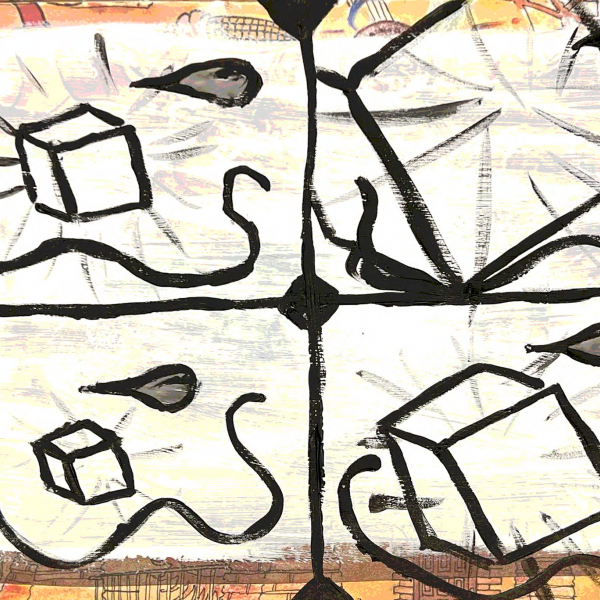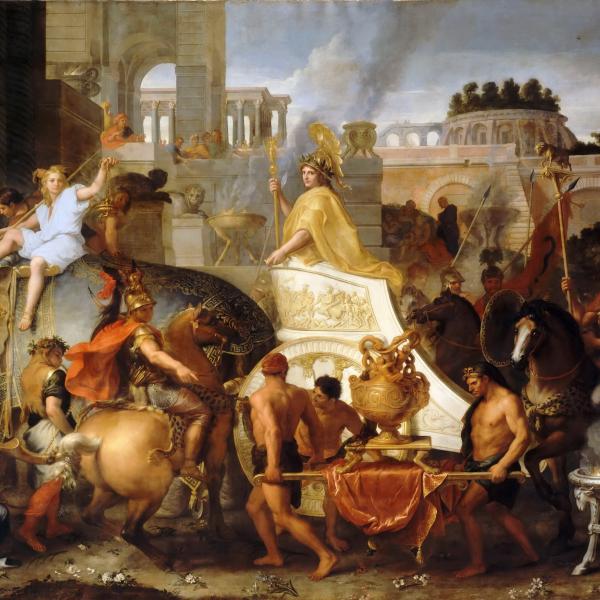By Jean Allman
J.H. Hexter Professor in the Humanities
Recently, some friends in Chicago invited me to a chocolate-tasting event at a rather chichi chocolatier, the location of which shall remain unnamed. For my tastes, there was too much lecturing on cocoa and the painstaking artisanal process and not enough actual sampling, but it was an okay way to spend a Sunday afternoon.
That is, until the owner mentioned, in passing, that she does not feature any chocolate that is crafted from cocoa grown in West Africa because it is, as we should all know, produced by child slaves.
Having spent decades in and around one of the most thriving cocoa-producing areas in West Africa (Ghana’s forest zone), my curiosity was more than piqued. Rural kids in most parts of the world, West Africa included, participate in agricultural labor. And certainly cocoa production has had a huge impact on family farming (registered more in gendered than in generational terms), but child slavery? Where exactly? Everywhere, I was informed. But where, exactly? Well, everywhere in West Africa, except Madagascar, which is an island off the west coast, I was told: “That’s why we feature chocolate that originates in Madagascar. But Congo, Ghana? Child slavery is rampant there. It’s all very terrible.”
Now, never mind that Madagascar is off the east, not the west coast of the African continent (see map below). And never mind that the Democratic Republic of the Congo is a couple thousand miles to the southeast of the Republic of Ghana. Bottom line for this chocolatier: It’s all the same, and it’s all “very terrible.”
Yes, it’s terrible . . . that business decisions, even on a small-storefront scale, can be (mis)informed by such self-righteous ignorance. But what do my chocolate-tasting escapades of a week prior have to do with the release, by Netflix, of its first original feature-length film, Beasts of No Nation, a week later, on October 16? Well, a little more than you might think, especially if what you are thinking about is place, and audience, and perhaps even a certain Chicago chocolatier!
 Based on Uzodinma Iweala’s critically acclaimed first novel, Beasts of No Nation tells the story of 12-year-old Agu, who lives in an unnamed West African nation, torn by the ravages of civil war. When forces draw near to Agu’s hometown, women and children are evacuated, but Agu stays behind with his older brother and his father — both of whom are murdered before his eyes when government troops attack and accuse the men left in the town of supporting the insurgency. Agu is able to flee into the forest, but he is eventually captured by a ragtag rebel army, made up mostly of boys and young men, led by the omnipotent “Commandant.” The film follows Agu as he is transformed from joking brother, loving son and playful schoolboy into a disciplined child soldier, capable of hacking victims to death with a machete or shooting them in the head at point-blank range.
Based on Uzodinma Iweala’s critically acclaimed first novel, Beasts of No Nation tells the story of 12-year-old Agu, who lives in an unnamed West African nation, torn by the ravages of civil war. When forces draw near to Agu’s hometown, women and children are evacuated, but Agu stays behind with his older brother and his father — both of whom are murdered before his eyes when government troops attack and accuse the men left in the town of supporting the insurgency. Agu is able to flee into the forest, but he is eventually captured by a ragtag rebel army, made up mostly of boys and young men, led by the omnipotent “Commandant.” The film follows Agu as he is transformed from joking brother, loving son and playful schoolboy into a disciplined child soldier, capable of hacking victims to death with a machete or shooting them in the head at point-blank range.
I came to Beasts of No Nation somewhat skeptical as to how a film might capture the decade-long horror that unfolded in Liberia and Sierra Leone during the 1990s. But writer and director Cary Joji Fukunaga (Sin Hombre, True Detective season 1) has done an outstanding job, not least in bringing to the screen the internal war waged in the heart and soul of young Agu. As he did with True Detective, Fukunaga keeps the worst of the violence and bloodshed off the screen, although that doesn’t make the watching any easier. It is traumatic. It is difficult. There are no feel-good moments.
Idris Elba (known by many in the U.S. for his outstanding performance as Stringer Bell in The Wire) plays the Commandant with a cool ferocity that keeps you on the edge of your seat. He is vicious and cruel, a sadistic abuser, but he also betrays a strange kind of paternal tenderness toward Agu and Agu’s speechless companion, Striker, that is as disconcerting as it is believable. The first-time actor Abraham Attah gives a stunning performance as Agu. Sometimes with only a subtle shift of his eyes, he can generate in the viewer feelings of both horror and total empathy. Fukunaga is known for casting nonprofessionals in his films. He found Attah on a soccer pitch in Ghana, where he was spending the afternoon instead of at school. Indeed, most of Beasts of No Nation was shot in Ghana (much of it in and around Koforidua — one of Ghana’s oldest cocoa-producing areas, just to reintroduce the chocolate theme!), and many of the actors, not just Attah, are Ghanaian.
Certainly, the big issues tackled in Beasts of No Nation transcend borders and cross time: What kinds of violence are we each capable of? When and how do humans become beasts? In what circumstances? These are universal questions, posed by humanities scholars every day.
At the same time, the story Fukunaga so stunningly portrays is rooted in the very real histories of social and political conflict in Liberia and Sierra Leone — conflicts that tore the subregion apart for over a decade and from which it has yet to recover. We learn nothing of that history, nothing about how those overlapping civil wars unfolded, why, and in whose interest, nothing of the devastation left in their wake.
Does it matter that this is a film about Liberia and Sierra Leone, shot in Ghana, with much of the early dialogue in Twi, a language spoken neither in Liberia nor Sierra Leone? Does it matter that it remains logistically difficult, if not impossible, to film in either of those countries, but that Ghana, for a specific set of historical reasons, currently has the infrastructure in place?
Perhaps in some ways, it doesn’t matter. But in others, I fear it does.
It is hard to imagine a World War II film where European country and European language are of little consequence. There may be a few out there, but none come to mind.
By embracing the ambiguity of place that features in Iweala’s novel, Beasts of No Nation does little to challenge the widespread ignorance in this country of Africa’s basic geography and may only reinforce some of the worst U.S. stereotypes of the African continent as vast, undifferentiated and generalizable, with all of the countries easily interchangeable: the Africa, in other words, of my chocolatier’s haunting fantasy.
That said, Beasts of No Nation, is an outstanding, must-see film and maybe, just maybe, it will encourage at least some viewers to learn more.





